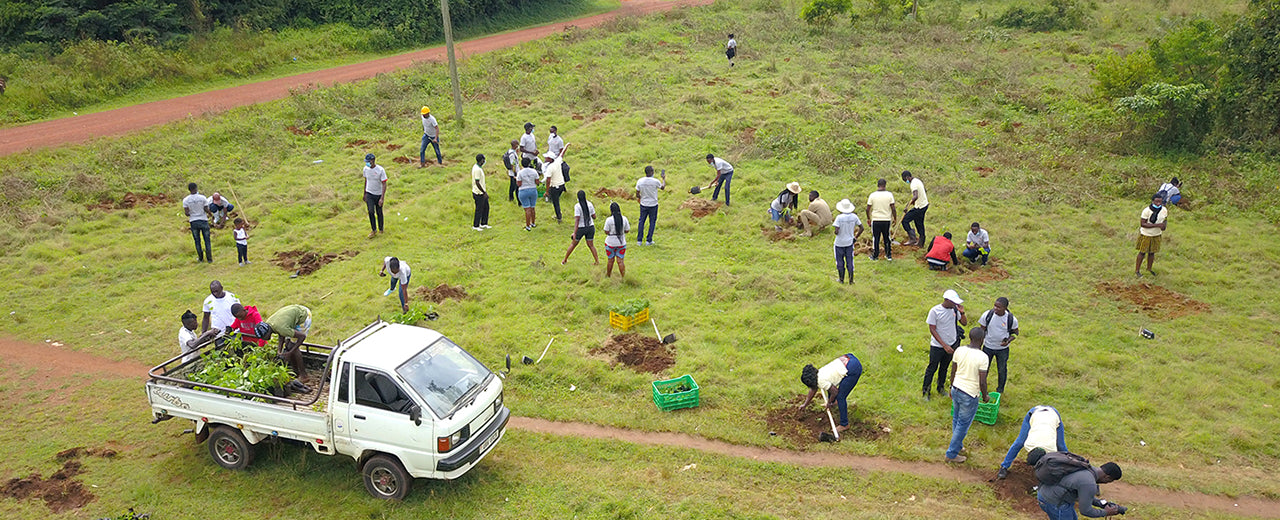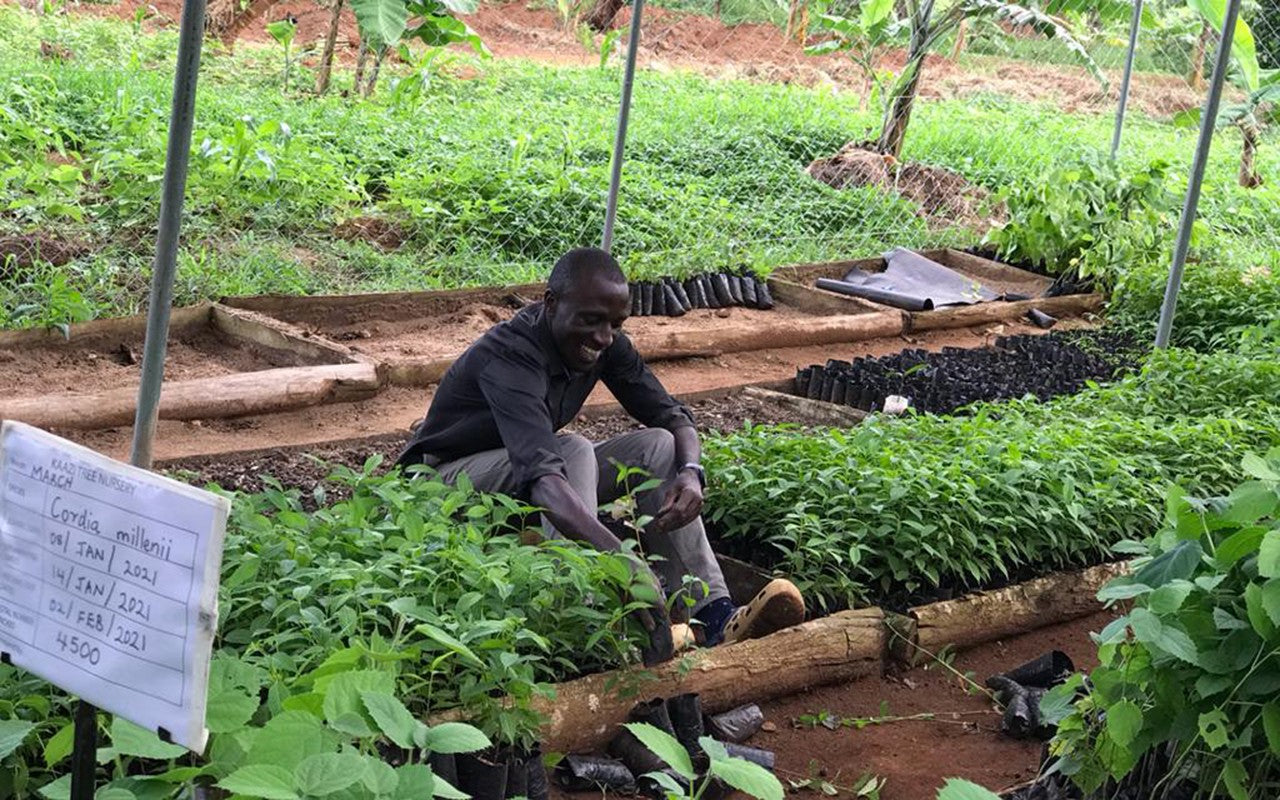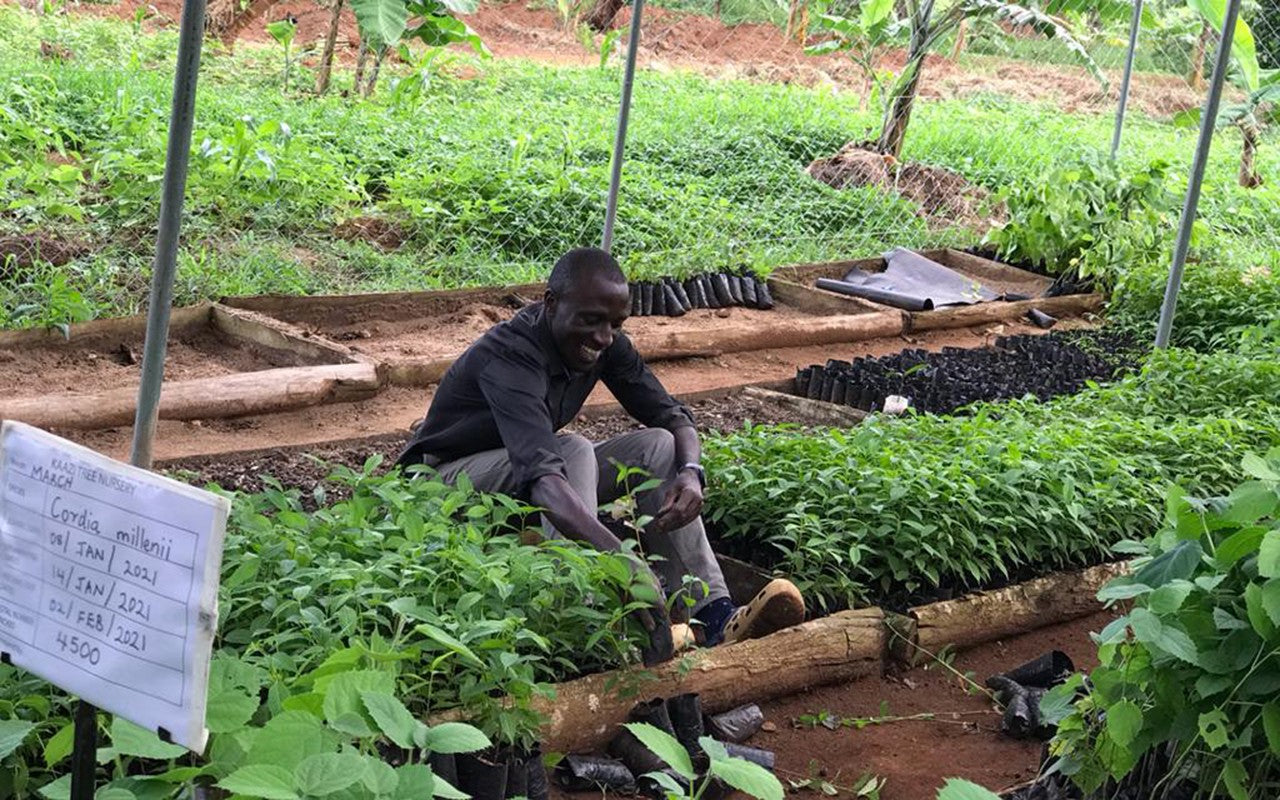Day 7
A new tree for the Kaazi Forest in Uganda
 Standing up against the climate crisis Standing up against the climate crisis
Standing up against the climate crisis Standing up against the climate crisis


Restore a refuge for humans and animals in the Kaazi forest

Mathias Schweikert presents his favorite project in the video
need
Intact forest reserve as a refuge for humans and animals in the densely populated Kampala region
activity
Provision of material for the maintenance of a tree nursery, the cultivation and planting of seedlings, workshops for the Uganda Scouts Association
Measurable performance
In the next 2 planting periods, around 60,000 seedlings can be planted
Result
Forest conservation area is wooded in parts and the tree nursery makes it possible to reforest further areas in the surrounding area
Systemically relevant impact
Animals and people use the forest as a place of refuge, the region is more resilient to climate change and dry periods are mitigated
background


The good deed
About Uganda
Kampala
Capital city
47,123,533
Population
858.1
Gross domestic product
per capita per year
Rank 166 of 191
Human Development Index
(Human Development Index)





